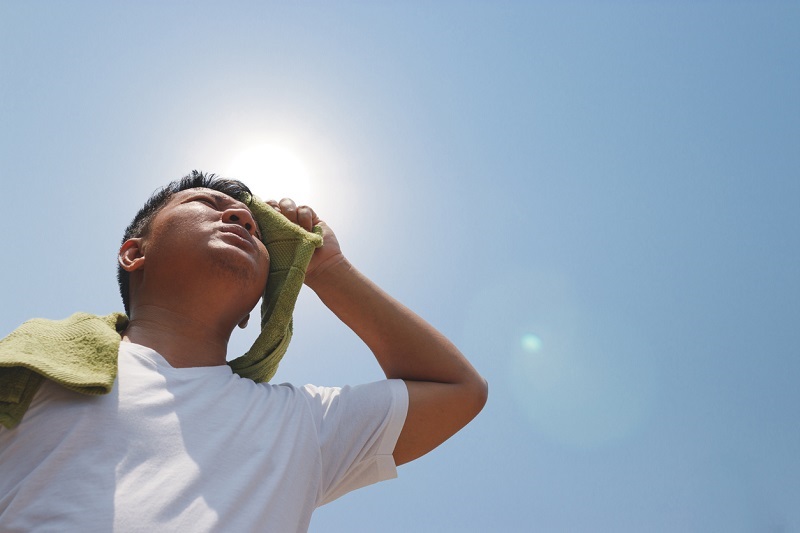
"It's not the heat, it's the humidity." Odds are, you've heard that phrase thrown around plenty of times about summer in Michigan, and it's especially true when it comes to the dangers of heat stroke.
"Heat stroke happens when there is failure in the body's thermoregulation system that results in a core body temperature increase above 104°F," said Sara-Bethany Weir, DO, McLaren Greater Lansing family medicine chief resident. "Your body mainly reduces heat evaporation, but this process is impaired when humidity is greater than 75% in the outside environment."
There are two different types of heat stroke: severe exertional hyperthermia and non-exertional hyperthermia. "Exertional hyperthermia is caused by exercise or activity in a person with an inability to dissipate heat or reduce the core body temperature," said Dr. Weir. "This is usually more prominent in younger athletes exercising outside."
Non-exertional hypothermia happens when a person with underlying medical conditions has their core body temperature rise above acceptable range, which is more common in elderly populations.
Both forms of heat stroke result in symptoms like a body temperature greater than 104°F, headache, confusion, rapid heart rate, difficulty walking, nausea, abdominal pain, muscle cramps, and seizure-like activity. If the symptoms continue for a prolonged period without treatment, severe organ injury and possibly death can result.
It's important to know the difference between heat stroke and heat exhaustion. While the symptoms are similar, heat exhaustion happens before the onset of heat stroke and includes symptoms similar to those of heat stroke, including weakness, headache, dizziness, and confusion. If untreated, heat exhaustion can lead to heat stroke.
"If you experience the symptoms of heat exhaustion or heat stroke, you should always seek immediate emergency care at the nearest hospital," said Dr. Weir. "The goal of treatment is to bring your temperature down by using techniques like cooling packs/blankets, chilled IV fluids, and fans in order to prevent damage to organs like the heart and brain."